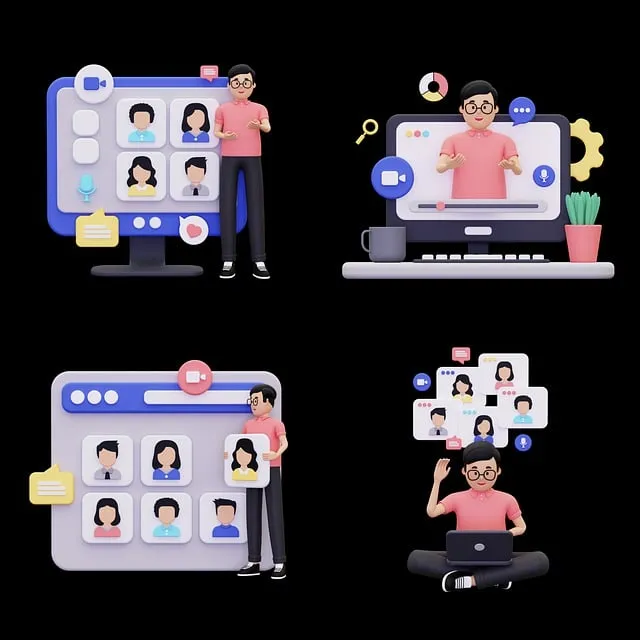In today's digital age, Confidential Computing offers a revolutionary solution for humanitarian aid workers by providing secure "confidential compute spaces" that protect sensitive data using advanced encryption. This approach enhances decision-making during critical missions and ensures personal details remain discreet. Additionally, it enables journalists to safely uncover crucial information through Stealthy Search Engine Results (SSERJ) tools, bypassing censorship and surveillance. By leveraging technologies like encrypted computing, zero-knowledge proofs, and secure multi-party computation, humanitarians can conduct SSERJ without compromising privacy. Best practices include encrypted communication, data anonymization, secure storage, strict data minimization, and focusing on essential information for efficient, ethical aid delivery.
“In an era where data privacy is paramount, confidential computing emerges as a transformative force for humanitarian aid workers. This innovative approach ensures secure data handling, fostering a new level of safety and efficiency in crisis zones. Our article explores ‘Understanding Confidential Computing’ and its potential impact on aid operations. We delve into the critical role of ‘Stealthy Search’ in protecting journalists and facilitating access to vital information. Additionally, we provide an overview of practical tools and ethical considerations, highlighting best practices for secure yet effective aid delivery.”
- Understanding Confidential Computing: A New Paradigm for Sensitive Data Handling
- The Role of Stealthy Search in Humanitarian Aid Operations: Ensuring Journalist Safety and Access to Critical Information
- Implementing Confidential Computing Solutions: Tools and Technologies for Field Workers
- Ethical Considerations and Best Practices: Protecting Privacy While Delivering Aid
Understanding Confidential Computing: A New Paradigm for Sensitive Data Handling

In today’s digital age, humanitarian aid workers often find themselves managing vast amounts of sensitive data related to vulnerable populations. Confidential Computing offers a revolutionary approach to handling this critical information, ensuring privacy and security like never before. This innovative concept goes beyond traditional data protection by enabling secure processing within isolated, protected environments, known as “confidential compute spaces.”
By utilizing advanced encryption techniques and stealthy search engine results for journalists, confidential computing keeps data both at rest and in transit without compromising its integrity. This paradigm shift is particularly beneficial for aid workers who need to access and analyze sensitive records discreetly, ensuring that personal details remain secure while enabling efficient decision-making during critical missions.
The Role of Stealthy Search in Humanitarian Aid Operations: Ensuring Journalist Safety and Access to Critical Information

In humanitarian aid operations, ensuring journalist safety and unfettered access to critical information is paramount. This is where stealthy search plays a pivotal role. By employing advanced techniques that sidestep traditional detection methods, journalists can uncover essential insights hidden within digital spaces without revealing their identities or sources. This subtle yet powerful approach allows them to navigate dangerous environments, gather sensitive data, and share vital stories that would otherwise remain untold.
Stealthy Search Engine Results for Journalists (SSERJ) tools enable these professionals to conduct thorough investigations discreetly. These tools utilize sophisticated algorithms and anonymization techniques to bypass censorship, geofiltering, and surveillance, ensuring journalists can access reliable information from within affected regions. By protecting their digital footprints, SSERJ empowers reporters to deliver accurate, up-to-date reporting, thereby facilitating more effective humanitarian response efforts.
Implementing Confidential Computing Solutions: Tools and Technologies for Field Workers

Implementing Confidential Computing Solutions provides Humanitarian Aid Workers with powerful tools to process sensitive data securely, even in remote or hostile environments. These solutions leverage technologies like encrypted computing environments, zero-knowledge proofs, and secure multi-party computation. By employing these advanced methods, aid workers can conduct Stealthy Search Engine Results for Journalists without compromising the privacy of individuals they assist.
Field workers can use specialized software containers that isolate applications and data, ensuring no trace of sensitive information leaks outside. Additionally, decentralized networks allow for secure data sharing among team members, enhancing collaboration while maintaining strict confidentiality. These technologies empower humanitarians to make critical decisions based on real-time data analysis, all while upholding the highest standards of data protection.
Ethical Considerations and Best Practices: Protecting Privacy While Delivering Aid

In the realm of humanitarian aid, where trust and transparency are paramount, Confidential Computing offers a game-changing approach to data handling. For journalists and aid workers navigating sensitive environments, ensuring privacy and security while collecting and processing critical information is an ethical imperative. By employing stealthy search engine results techniques, professionals can access and analyze data discreetly, preserving the anonymity of sources and individuals affected by crises.
Best practices in this context involve utilizing encrypted communication channels, anonymizing personal details during data collection, and implementing secure cloud storage solutions. Moreover, strict data minimization principles should be applied, focusing on gathering only essential information relevant to the humanitarian effort. This holistic approach ensures that privacy is protected while enabling efficient aid delivery, ultimately fostering a more robust and ethical response to global humanitarian challenges.
Confidential computing is transforming humanitarian aid by providing a robust framework for handling sensitive data securely. From ensuring journalist safety through stealthy search capabilities to implementing practical solutions in challenging field environments, this technology empowers aid workers to access critical information while upholding privacy and ethical standards. By leveraging the right tools and adopting best practices, humanitarian organizations can maximize the impact of confidential computing, fostering more effective and responsible aid delivery worldwide. Additionally, promoting awareness about stealthy search engine results for journalists further enhances safety and access to information in high-risk environments.
